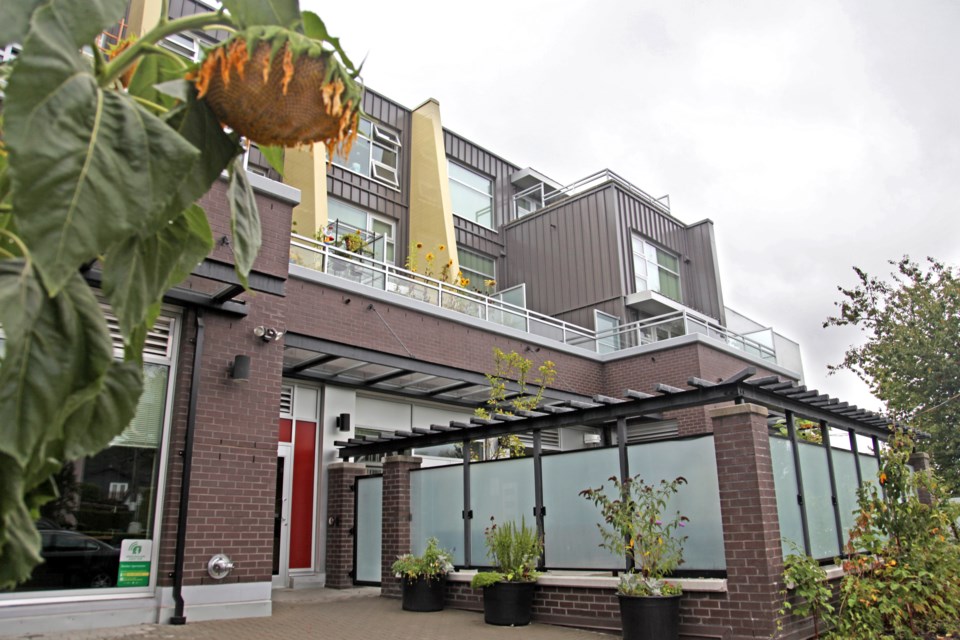Sheila Werner has the details of her life, big and small, written in a neat hand on a sheet of paper. Seated in the library of a supportive housing facility at 16th Avenue and Dunbar Street, she glances down at the page every now and then while telling her story.
She was born in Chilliwack, and grew up working at her parent’s toy and athletic goods store. She graduated high school with A’s and B’s in 1969, met her former husband when she was 23 and went on to have three daughters. Nine years later, she and her husband separated, leaving her with a house she couldn’t afford in Maple Ridge. She lost her job and was unemployed while raising her kids. In 2003, she was diagnosed with severe depression and committed to St. Paul’s hospital for 14 months.
“I was just immobilized,” she said of her illness. Werner has been on social assistance and in and out of supportive housing. In December 2011, she became one of 51 tenants at the Dunbar complex. It’s the only housing of its kind in the neighbourhood, known for its tree-lined streets and costly single-family homes.
They’re all still new to Dunbar. The complex, which came into the neighbourhood over howls of protest from some residents, will celebrate its second birthday in December. Managed by Coast Mental Health, it was developed as part of an agreement between the city and B.C. Housing to create eight new social housing complexes. The idea for such a complex was first floated in 2006. Over the course of several years, many residents attacked the plan, worried that a facility in the neighborhood would lower property values and lead to criminality.
“The local Dunbar people said ‘we don’t want that in Dunbar.’ All that happened two or three years before any planning happened for the Dunbar site,” said Coast executive director Darrell Burnham. “That was probably the worst of it.”
Nearly two years since the groundbreaking, residents like Werner are still explaining what her home is, and what it’s not. “It’s not a hospital,” she said. “It’s not a mental health facility.” Residents receive a daily meal and are looked after by a 24-hour staff, but beyond that are expected to be reasonably self-sufficient. Thirty residents receive treatment from Vancouver Coastal Health for mental illness. Four are wheelchair bound with spinal injuries. Five are hard to house members of the Jewish community. Another 12 are one-time homeless people from the West Side, tracked down with the help of local Anglican ministries. Some residents dealing with severe forms of mental illness or addictions have been transferred to more supportive housing.
One of the aims of putting the facility in the city-owned building was to provide mental health resources around the city.
"They wanted to spread [supportive housing] out, and they also thought there was a need for these resources on the West Side,” said Burnham. “People are responding well in the facility, and it’s showing that these facilities can be and should be in every neighbourhood in the city.”
For Werner, it’s a place where she knows everyone’s name, in a community that has largely come around on the idea of them as neighbours. “It’s the warmest community I’ve lived in,” she said.
me@jonnywakefield.com
twitter.com/jonnywakefield



